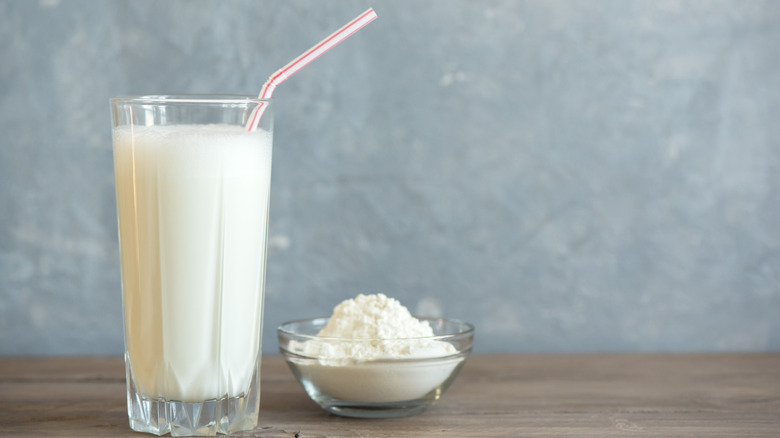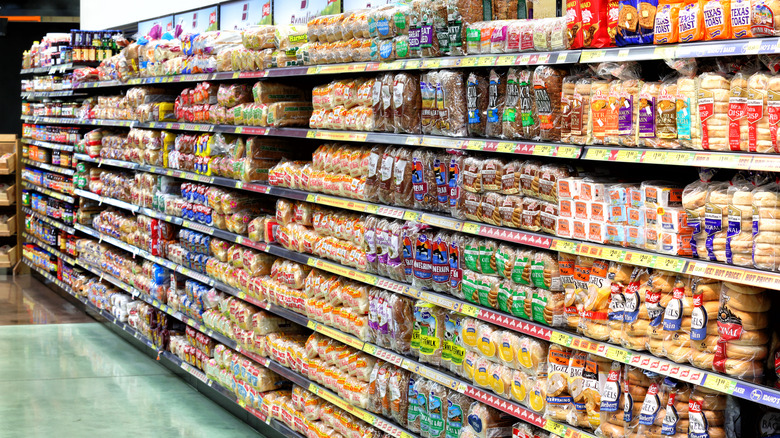Why You Should Avoid Casein On An Ingredient Label If You're Vegan
Eating a vegan diet has many beneficial health benefits, and of course is a step beyond eating a vegetarian diet. While a vegetarian diet excludes meat and fish, a vegan diet cuts out all foods that contain animal products, including eggs and dairy. The health benefits of going vegan are plentiful and include a lower risk of chronic disease including heart disease, cancer, and high cholesterol (via MedicalNewsToday), but is it worth it?
Initially, a vegan diet can be hard to follow especially if you've been consuming meat and animal products all your life. Your stomach may act up in the early stages of a vegan diet as your gut bacteria stop working overtime to digest meat and animal products and get used to breaking down plant matter. You'll also be consuming more fiber. This combination can temporarily result in gas and bloating (via Insider).
Once you've settled into the vegan lifestyle, you may feel lighter, more energized, and have a regular staple of food items you enjoy. Yet there are many sneaky animal products that end up in foods you might think are vegan. Casein is one such food.
Casein is made up of animal protein
Casein is a protein found in milk from all mammals. According to Science Direct, casein is actually the "most important protein component in milk." It's a rich source of both amino acids and polypeptide chains. The amino acids found in casein are nutritious and muscle-building, which is why so many protein powders contain casein. What makes casein so useful in various food combinations is the fact that it is so slowly digested.
Casein digests more slowly than other animal proteins and that results in less hunger and more satiety (via WebMD). Casein is also thought to help increase insulin in those with diabetes and reduce post-exercise muscle soreness.
Despite the benefits of casein, it's not something that fits in a vegan diet since all casein contain animal protein. The tricky part is that casein can be found in foods that you may think are vegan, so it's important to check food labels.
Where casein may hide in food
When scanning food ingredients on packages, casein is one ingredient that may go unnoticed. Though you may think you're safe with whole grains in general, many store-bought loaves of bread — even the nutritionally dense types — may contain casein. According to The Spruce Eats, processed bread, including both wheat and white, almost always has casein as an ingredient. Slightly more obvious, so does cornbread, banana bread, and pumpkin bread. On a smaller scale, most crackers and cookies have casein. Surprisingly so do many breadcrumbs and granola.
One of the most surprising places that you may find casein is in vegetarian meat substitute products. Just because it's vegetarian doesn't necessarily relate to being vegan, so it's worth investigating before purchasing.
Keep in mind the ingredients may not always say casein (via Livestrong). They may list lactic acid or artificial flavorings, and these ingredients may contain casein. When choosing purely vegan foods, look for a label that explicitly states that it's vegan.


